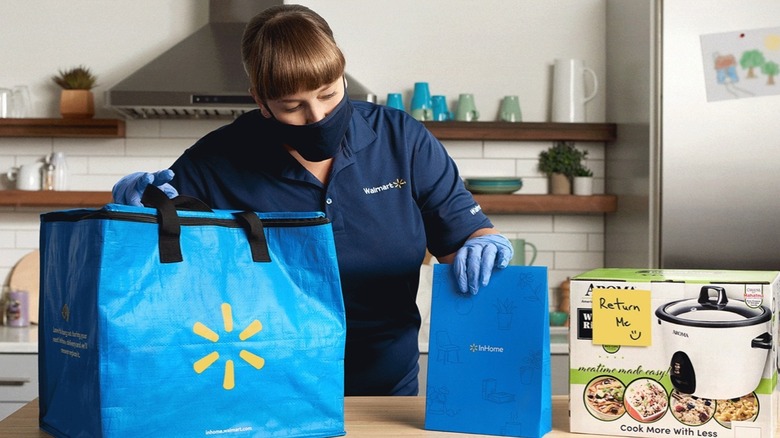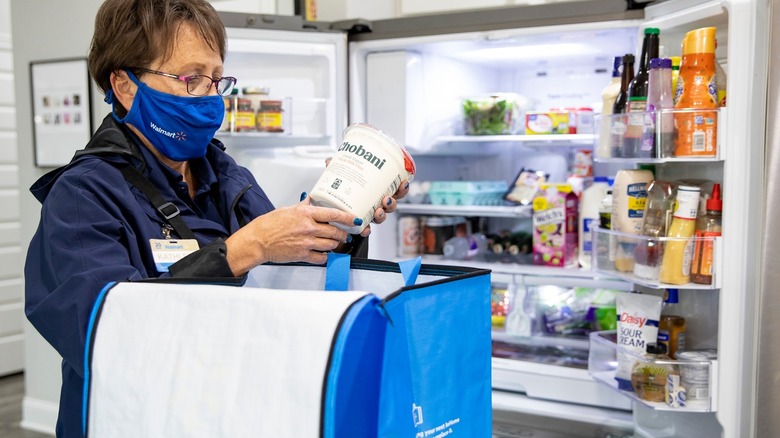Everything We Know About Walmart's InHome Delivery Expansion
Walmart has announced that it will expand its InHome Delivery service over the course of 2022. In a press release, the company explained that after two years of testing the service in select markets, it will soon serve 30 million U.S. households instead of its previous 6 million. As its name suggests, the subscription service allows customers to have their groceries delivered "InHome," meaning associates literally place the food into customers' home refrigerators or pantries. The deliverer accesses a subscriber's home using a one-time code and smart lock, set up through the InHome app, and wears a camera on their vest during the entire order fulfillment process. The service is available for a monthly fee of $19.95 or $148 annually.
To expand the InHome Delivery service, Walmart shared that it intends to hire 3,000 drivers, who will receive $1.50 more per hour than most in-store employees and will be eligible for the company's benefits package. Presumably, the service is ideal for some customers because it allows them to get groceries without needing to go to the store or stay home to accept a delivery. For those who would rather their delivery drivers not enter their homes, however, it presents an issue.
Are you OK with Walmart recording the inside of your home?
The expansion of InHome Delivery appears to be Walmart's way of keeping up with a competitor, Amazon, which PYMNTS.com notes recently launched an in-garage delivery program called Key. The appeal of such programs is fairly obvious: You don't want to receive an email confirming your delivery only to return home and find that someone has stolen it from your porch. If companies like Amazon and Walmart can place the packages inside your house, your worries are gone — kind of.
As Sam Dean pointed out in the Los Angeles Times in 2019, the tradeoff for these services is that a stranger is entering your home. Yes, they're wearing a camera, but that also means they're recording your personal space. An Amazon spokesperson told the publication that customers can delete the footage, but anything undeleted "may be used to help improve Amazon's services." Meanwhile, Walmart owns the body cameras worn by its InHome drivers, which may give customers less control over what happens to video of their homes. The company's press release says customers have access to the video for one week after their delivery.

